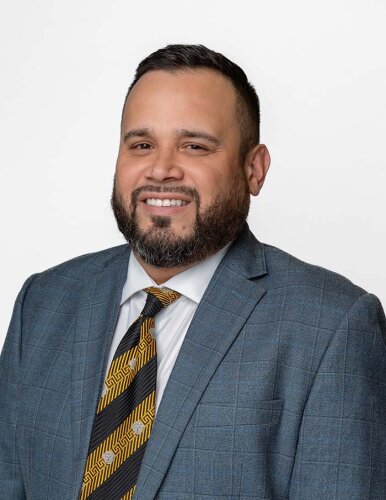Best Brain Injury Lawyers in McAllen
Share your needs with us, get contacted by law firms.
Free. Takes 2 min.
List of the best lawyers in McAllen, United States
About Brain Injury Law in McAllen, United States
This guide provides a clear, practical overview of legal issues people commonly face after a brain injury in McAllen, Texas. Brain injuries - whether traumatic brain injury from a car crash, slip and fall, workplace accident, medical error, or stroke-related injury - can have long-lasting medical, financial, and emotional consequences. In McAllen, injured people generally pursue compensation through Texas personal injury law, workers' compensation, medical malpractice claims, or administrative claims against government entities. Cases often require medical records, expert testimony, and careful attention to local court rules and time limits.
Why You May Need a Lawyer
A lawyer can help protect your health and financial future after a brain injury. Common situations where legal help is important include:
- Serious or persistent symptoms after an accident, such as memory loss, cognitive changes, personality changes, headaches, dizziness, or loss of function.
- Complicated liability or multiple responsible parties, for example when a car crash involves uninsured or underinsured drivers, or when a workplace injury may involve third parties in addition to the employer.
- Disputes with insurers over coverage, denials, or low settlement offers that do not account for future medical care and long-term disability.
- Medical malpractice or surgical errors that caused or worsened a brain injury, where proof of negligence and causation will be required.
- Claims against government entities or officials, where special notice requirements and shorter deadlines often apply.
- Workers who are injured on the job and face complex workers' compensation issues or employer retaliation.
Brain injury cases typically need medical experts, life-care planners, vocational specialists, and an attorney who knows how to obtain and present the necessary evidence to maximize compensation for medical care, rehabilitation, lost income, loss of earning capacity, and pain and suffering.
Local Laws Overview
Several Texas and local legal rules are particularly important for brain injury claims in McAllen:
- Statute of limitations: Most personal injury and wrongful death claims in Texas must be filed within two years of the date of the injury. Missing the deadline can bar your case. Medical malpractice claims follow different timelines and procedural steps, including pre-suit requirements and shorter discovery rules in some cases.
- Comparative fault: Texas follows a proportionate responsibility system. If an injured person is partly responsible for their injury, their recovery is reduced by their percentage of fault. In many cases, a plaintiff who is more than 50 percent at fault cannot recover.
- Damages limits: Certain types of claims, particularly medical malpractice, may have statutory limits on non-economic damages and specific rules for punitive damages. Claims against state or local governments may also face caps or special procedures.
- Workers' compensation: Texas employers are not required to carry workers' compensation insurance, but if an employer does provide it, workers' compensation is usually the exclusive remedy against the employer for workplace injuries. If the employer does not carry workers' compensation, an injured worker may be able to sue the employer directly, and third-party claims may still be available.
- Government claims: Claims against city, county, or state entities often require a written claim or notice within a short timeframe and may require compliance with statutory notice provisions before a lawsuit can be filed.
- Local courts and filing practices: Hidalgo County courts and Texas state courts follow specific local rules for filings, evidence, and timelines. Consulting a McAllen-area attorney familiar with local judges and procedures can be important for case strategy.
Frequently Asked Questions
What counts as a brain injury under Texas law?
Brain injury can include traumatic brain injury from impact or acceleration-deceleration events, anoxic brain injury from lack of oxygen, stroke-related brain injury, and brain injury caused or worsened by medical error. The legal issue is whether the injury was caused by another party's negligence, wrongful act, or omission and whether it produced compensable harm.
How do I prove my brain injury in a legal case?
Proof typically requires medical records, diagnostic imaging such as MRI or CT scans when available, neuropsychological testing, testimony from treating physicians and independent experts, records of lost wages and medical expenses, and evidence linking the injury to the incident that caused it. Early and thorough documentation of symptoms and treatment improves proof.
How long do I have to file a lawsuit in Texas?
For most personal injury and wrongful death claims, the deadline is two years from the date of injury. There are exceptions and different rules for medical malpractice and government claims, which can have shorter deadlines or special pre-suit requirements. Consult an attorney promptly to preserve your rights.
What if my brain injury happened at work?
If your injury occurred at work, start by seeking immediate medical care and notify your employer according to company procedures. If your employer has workers' compensation, that system may provide benefits for medical care and partial wage replacement, but it can limit your right to sue the employer. You may still have a third-party claim against a negligent party who is not your employer.
Can I recover for future medical care and long-term needs?
Yes, compensation can include estimates of future medical care, rehabilitation, assistive devices, home modifications, and long-term custodial care. A strong case typically uses life-care plans, medical expert opinions, and vocational analyses to quantify future needs and lost earning capacity.
What if the responsible party is uninsured or underinsured?
If the at-fault driver or party lacks adequate insurance, you may pursue uninsured or underinsured motorist coverage if you have it, or seek recovery from the at-fault party's personal assets. An attorney can evaluate insurance policies, identify additional liable parties, and explore other paths to recovery.
Do I have to go to court to get compensation?
Many brain injury claims resolve through settlement negotiations. However, large or contested claims may go to trial. An attorney will advise whether a settlement offer fairly compensates your present and future needs and whether litigation is necessary to obtain full recovery.
How much does a brain injury lawyer cost?
Many personal injury lawyers work on a contingency-fee basis, which means they are paid a percentage of the recovery only if you win or obtain a settlement. Fee structures and costs vary, so ask about fees, expenses, and how they are handled at your initial consultation.
What should I bring to an initial consultation with an attorney?
Bring any medical records, diagnostic tests, bills, wage statements, accident or police reports, photos, witness contact information, insurance policy information, and a written timeline of events and symptoms. This helps the attorney evaluate liability, damages, and deadlines.
How soon should I contact a lawyer after a brain injury?
Contact an attorney as soon as reasonably possible after stabilizing medically. Early legal involvement helps preserve evidence, protect your rights when dealing with insurers, and ensure compliance with time-sensitive notice and filing requirements.
Additional Resources
Organizations and agencies that can provide medical, legal, or advocacy assistance include:
- Brain Injury Association of America and Brain Injury Association of Texas - national and state-level support and information on rehabilitation and advocacy.
- Texas Department of State Health Services - public health resources and data related to brain injury care and prevention.
- Texas Department of Insurance - information on workers' compensation and insurance questions.
- Hidalgo County District Clerk and local courts - filing information and local court procedures for McAllen and Hidalgo County matters.
- Local hospitals and rehabilitation centers in McAllen - for immediate care and long-term rehabilitation planning.
- Legal aid and pro bono clinics - for low-income residents who need legal advice but cannot afford private counsel.
Contact these organizations for medical support, rehabilitation referrals, insurance guidance, and general legal resources. An experienced local attorney can also recommend appropriate medical and vocational experts for your case.
Next Steps
If you or a loved one has suffered a brain injury in McAllen, consider these practical next steps:
- Seek immediate and appropriate medical care. Follow up with specialists and document all treatments and symptoms.
- Preserve evidence: keep medical records, download photos and video, save correspondence with insurers, and write a detailed timeline of the incident and post-injury symptoms.
- Report the incident as required - for example, to your employer, the police, or property owner - and obtain copies of any reports.
- Contact a local personal injury attorney with experience in brain injury cases. Ask about experience with brain injury litigation, contingency fees, available expert witnesses, and typical timelines.
- Prepare for an initial consultation by gathering records and a list of questions about your case, possible outcomes, and next steps.
This guide is informational and not a substitute for legal advice. Because laws and deadlines are time-sensitive and fact-specific, consult a qualified McAllen-area attorney promptly to protect your rights and to obtain advice tailored to your situation.
Lawzana helps you find the best lawyers and law firms in McAllen through a curated and pre-screened list of qualified legal professionals. Our platform offers rankings and detailed profiles of attorneys and law firms, allowing you to compare based on practice areas, including Brain Injury, experience, and client feedback.
Each profile includes a description of the firm's areas of practice, client reviews, team members and partners, year of establishment, spoken languages, office locations, contact information, social media presence, and any published articles or resources. Most firms on our platform speak English and are experienced in both local and international legal matters.
Get a quote from top-rated law firms in McAllen, United States — quickly, securely, and without unnecessary hassle.
Disclaimer:
The information provided on this page is for general informational purposes only and does not constitute legal advice. While we strive to ensure the accuracy and relevance of the content, legal information may change over time, and interpretations of the law can vary. You should always consult with a qualified legal professional for advice specific to your situation.
We disclaim all liability for actions taken or not taken based on the content of this page. If you believe any information is incorrect or outdated, please contact us, and we will review and update it where appropriate.














